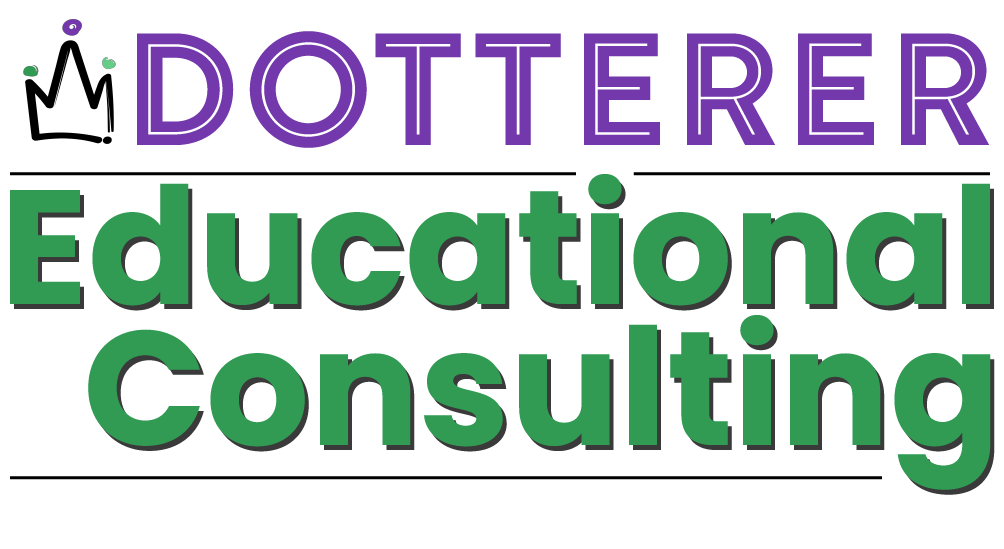Does your child have dysgraphia?
If any of the symptoms below are familiar, it’s likely your child has dysgraphia.
Download the free parents’ guide to dysgraphia to learn how you can help transform your child’s writing struggle.
- Avoid handwriting
- Awkward pencil grasp
- Awkward letter appearance
- Breaks pencils often
- Difficulty managing margins
- Hand cramps or pain
- Intensely watching his/her hand when writing
- Pencil pressure is too light
- Poor fine motor skills
- Unorganized paragraphs
- Unusual hand or paper position
- Written Expression does not meet expectations
Dotterer Educational Consulting equips adults so they can help and advocate for their children.
We do not work with children directly. However, you can use these resources to find the help your child needs.
We offer free and paid programs to help you better understand your child.

Public School Parents
Every child deserves a Free Appropriate Public Education (FAPE) according to the Individuals with Disabilities Education Act 2004 (IDEA). We support parents by reviewing documents in preparation for IEP meetings. An IEP is an Individualized Education Program. It is the care plan for your child’s school day.

Private School Parents
According to the Regulations, your student can also receive the support that is supplemental to the classroom. Your school may receive federal funds for certain areas of the school. If so, request that they have your child evaluated. Ask your Head of School, in writing, what the process is in your building. We have the staff to help if you get stuck.

Homeschool Parents
You have taken on the challenge of your child’s entire education. Kudos. This task is just as challenging as teachers in a traditional school building. Talk with our homeschool specialist to arrange workshops for your homeschool co-op or attend any of the professional development trainings we offer.
Free Resources
Body Sentence Alphabet
The Body Sentence Alphabet is a visual, auditory, and kinesthetic (movement) alphabet to improve spelling and vocabulary.
Decoding Dysgraphia
Get an overview of the types of dysgraphia. Each type includes one intervention to get you started helping your child. Register Here.
Virtual Dysgraphia Coffee Chat
Have a question? Cheri offers free office hours. Click here to find out when the next session is happening.
Frequently Asked Questions
https://www.cheridotterer.com/faq/
Other Resources
Handwriting Brain-Body DisConnect
Get a signed copy of Cheri’s book (US only)
Defeat the frustration of handwriting avoidance. Build confidence and competence in your understanding of dysgraphia. Be the dysgraphia authority in your school.
Book Cheri to Speak
Consider having Cheri speak to your parent organization. Learn more
Personal Growth
As Carol Dweck reported in her research, a growth mindset sets you apart from others.
Do you know who you are at your core?
Do you know why you are here?
Do you know where you are going?
You need to understand yourself first; then you can help others. Everyone should invest in themselves annually. Here is a great place to start.
Rewrite the futures of your students by investing in yourself through these programs.
Take on dysgraphia and change the atmosphere of your classroom/clinic!
You were put with each child in your classroom/clinic for a specific reason! Be the teacher/therapist who sets a child’s learning ablaze!
Research Connections
Are you interested in having a graduate student evaluate your child for dysgraphia? We are working to have this feature available in 2022. Join the waiting list.
Dotterer Dysgraphia Method
The Dotterer Dysgraphia Method is a certification program based on the research from our founder, Cheri Dotterer. Completing this program grants you a certificate as a Certified Dysgraphia K-5 Specialist.
We are developing programs across the lifespan to become a Dysgraphia Consultant.
Additional Resources
Our story
We believe that professional and personal development across the lifespan rewrites the story of trauma associated with invisible learning disabilities, such as dysgraphia.
We help students by first transforming the professional and parents to recognize their disability.
By synthesizing best practices, building community, and transforming perspectives, students will change the legibility and speed of their writing and their social-emotional well-being.
We accomplish this by
- Linking universities and schools to develop research for dysgraphia.
- Providing professional development to schools, clinics, and parent organizations.
- Helping students through interventions, strategies, and educational systems overcome the shame associated with handwriting problems so they can rewrite their story, from struggle to success

